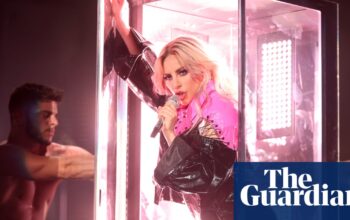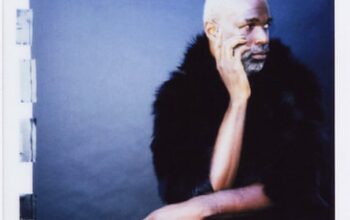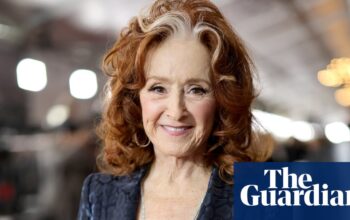I always knew I was adopted. I had a sister, Mary, and a brother, Tony, and we all looked quite different, so I suppose our adoptive parents, Harrington and Elizabeth had to tell us the truth. They took us all in as babies – each one a year apart – I’m the eldest. We were all told from the beginning and it was a warm, loving family – it was only me that was the tearaway.
We were happy growing up in Worthing, Sussex, and our parents provided a loving family home, so I didn’t think about being adopted much during my early childhood. But as I moved into my teenage years and beyond, my parents struggled to contain me – as Bob Dylan sang, “Your sons and daughters are beyond your command,” and so it was with me.
At 16, I did the overland trail to India. I got my first job in a laundry in London, driving to West End hotels and picking up their dirty linen. Then I went on to sell ad space for Sounds magazine, based on the Holloway Road. I loved music and went to gigs every night of the week, finally persuading an editor to let me write for them. I started reviewing rock and soul bands – and from there I went to work with the Who.
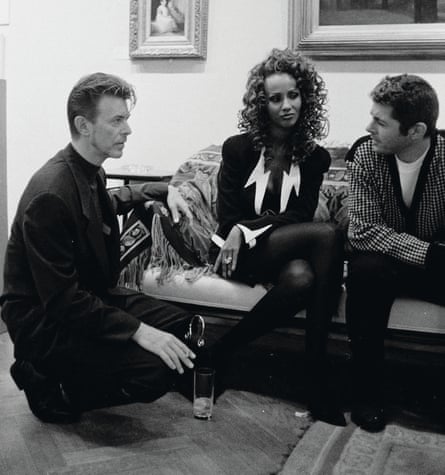
Throughout my life and career, I have always felt as if I was seeking a tribe, whether that was the punk scene I threw myself into or the family atmosphere that surrounded me working with the Spice Girls in the 90s.
Even though I would go on to have a lovely family of my own, I continued to harbour a deep sense of not belonging. I began to wonder about my birth mother. Yet, even as an adult, I was somewhat reluctant to find out more about her. I felt that would have in some way been disloyal to my adoptive parents, who had given me so much. So the office became a sort of surrogate family and it would really hurt me when people moved on to other jobs. Sometimes, when friends went away to spend the weekend with their families, I felt jealous; the Paul Simon song, Mother and Child Reunion, would start playing in my head involuntarily.
I never had a specific career plan, but I had an intense drive to succeed and to be loved and appreciated. In a way, I had found the perfect career in PR, because you’re always seeking the satisfaction of a client for a review or a good story. It’s very much a service industry and searching for approval was deep in me somewhere. People took me under their wing and guided me personally and professionally – including Mick Jagger, who tutored me in the business of global rock’n’roll. I must have had an air of the motherless child about me.
It was through punk that I found another sort of family. When I saw Paul Cook from the Sex Pistols wearing an “I Hate Hippies” T-shirt, after meeting so many of them in India, I felt I’d found my kindred spirits. That sense of seeking out a tribe to belong to carried on when I worked with the Spice Girls. I’ll always remember meeting around Victoria’s kitchen table, enjoying takeaways with her parents, and the other girls’ families; aunts, uncles and friends. Then there were musicians, like Bowie, whom I really connected to in a different way. He was a seeker and I understood that – the sense of being alone.
I knew that to confront this profound need to belong, I had to find out more about where I was really from. So, eventually, in my late 30s, I went to the Catholic Adoption Society in south London to find out about my birth mother. I was surprised when I sat down and the man from the society said: “We knew you’d be a good communicator; if you weren’t, you might not be here today.” I wasn’t sure what he was referring to, but when I saw the papers, copies of which they quite freely handed over back then, I understood why. Much of my first year on the planet, in 1955, was like being in a game of pass-the-parcel, moving from one foster family to another. Maybe somewhere deep inside I understood the need to be properly adopted and hence learned to reach out to people without words, even at that young age. I have often mused that that was my introduction to the world of PR. I took the papers from the adoption society home with me and consequently mislaid them, accidentally on purpose. Maybe it was too much to think about the contents.
My adoptive parents once told me that I cried almost non-stop for the first year I lived with them. I was only 18 months old. But after that, I never cried at all. In fact, I can probably count the number of times I’ve properly cried since, although I do seem to well up during British films from the 1950s, starring actors like Celia Johnson or John Mills. My partner, Chandrima, chides me that I only watch black and white movies; a part of my head seems immersed in that era and I wonder if it’s something to do with a half-memory of my birth mother.
My adoptive father, Harrington, a solicitor, was in very poor health and died in 1981 when I was just starting out in work. My adoptive mother, Elizabeth, had a serious stroke in 1976, but still always took a keen interest in my career and I made a point of sending her a postcard from wherever I went on my travels. When she passed away in 1998, there was a signed bouquet of flowers from Victoria, Geri, Melanie, Emma and Melanie. It was the height of Spice Girls mania, but I don’t think any of the mourners at the quiet church in Worthing made the connection. Elizabeth would have been touched, though.
Really the only detail I knew about my birth mother was that she came from Ireland. So when Brexit happened, it occurred to me I could apply for an Irish passport. I filled in the necessary forms and, a few days later, my then PA, Sarah, asked me if I knew I had a half-sister called Paula. She’d found something on the internet during the application. So I reached out to her and one Saturday morning she phoned. Paula said I’d better sit down, and maybe I should have a drink, because she was going to tell me everything. She told me how Mary, our mother, had grown up in rural poverty before moving to Dublin where she worked in the Post Office and then to London where the bright lights of the West End drew her in.
Later, I went down to meet Paula and her husband outside London. We went for a walk in the town, where I randomly bought a Peter Cushing book, which turned out to be appropriate because Paula was soon recounting to me how Mary would describe the home she grew up in as a “house of horrors”. Although Paula cautioned against expecting much of a response, she gave me my mother’s address.
I wrote a letter and read it over and over before working up the courage to send it. Once I had, the days seemed to drag, and I started to wonder if she would ever reply – and then one day I got a response. She talked about the weather and how she was glad I had done well. It was banal, really, but to me it was like a precious artefact. Excitedly, I would read it again and again, looking for clues. I photocopied it so that if I mislaid it, I would have a duplicate. I crafted a response and took it to the postbox, nervously checking I’d used the right stamp and so on. This conversation I had started felt like a flickering candle and I was terrified it would go out and I’d never hear from her again.
after newsletter promotion
One Saturday afternoon, as I was watching Arsenal v Leicester on the TV, the phone rang with a number I didn’t know. It was her, my mother. For the first time in my 65 or so years on the planet, I spoke with one of my birth parents. She asked me repeatedly if I had had a happy childhood, as if she was trying to exonerate herself in some way. I replied in the affirmative. Largely my childhood had been happy and my adoptive parents were loving and caring, but I did feel some resentment and loneliness despite it all.
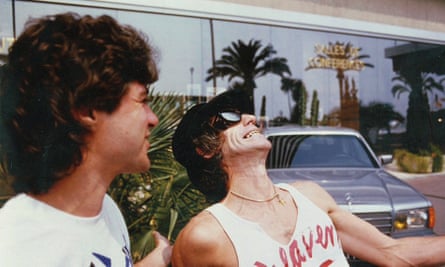
I didn’t say anything about that to Mary, though, in case I scared her away. I asked her about music, thinking this might be a way to develop a dialogue. She said that she used to go to places like the Marquee and Astoria when she was working in Soho, which made me realise that most likely I had passed her in the street or perhaps even met her without recognising her. Much of my working life was spent in Soho, too. We agreed to keep in contact, but I couldn’t elicit an agreement to meet up or anything like that.
There were a couple more letters. In one she said she was a Rod Stewart fan and I offered to get her special tickets thinking that might be a way through to her, but she didn’t take me up on it. I offered to bring things round to her home if she needed anything – she lived in Willesden, London, not more than half a dozen stops on the tube from me. I could be there in 20 minutes, I told her, but it was never to be. For whatever reason, she didn’t really want to see me and, of course, that hurt. I know when she put me up for adoption, times were hard and she was a young girl ducking and diving through life, but it was tough to face rejection again.
Not long after this final exchange of letters, Paula told me Mary was in hospital. It was the height of Covid and, of course, she wasn’t allowed visitors. When she died, she didn’t have a funeral because of the restrictions. I still struggle to process what really happened. In some ways I’ve been grieving for my mother my whole life and I’m left with many conflicting emotions. I recognise that if it wasn’t for my adoptive family, my life would have turned out very differently. And yet of, course, I feel a sense of rejection – both at being given up as a baby, and that my mother wasn’t keen to meet when we made contact towards the end of her life. I feel she never really wanted to confront the things that had happened in her own life.
I’ll always regret that I never got to meet Mary, even though we could so easily have passed each other in the street many times. But I’m pleased we got to speak and she got to know that my life turned out OK. That everything had come good. And I’m pleased that thanks to that passport application in 2019, I now have a birth sister, in addition to an adoptive one, and we have a nice relationship. The process of being so close to meeting my mother, after 65 years without her, has given me a sense of understanding about why I am the way I am. I just wish my mother could have lived long enough to read my book, so she’d have known more about my life than I ever had the chance to tell her.
I Was There: Dispatches from a Life in Rock and Roll by Alan Edwards is published by Simon & Schuster, at £25. Buy a copy for £22 at guardianbookshop.com
Source: theguardian.com
